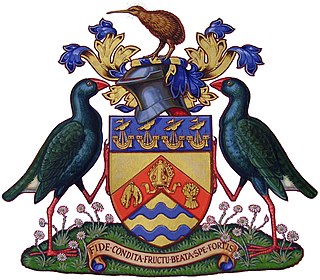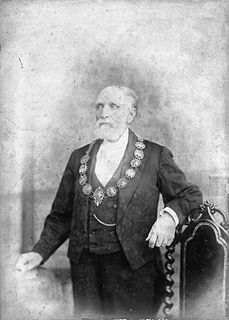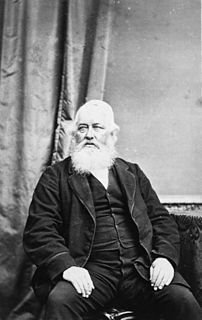
Sir William Jukes Steward was a New Zealand politician and the first Liberal Speaker of the New Zealand House of Representatives. He represented South Canterbury electorates in Parliament for a total of 34 years, before being appointed to the Legislative Council. He served briefly on the Otago Provincial Council and was Mayor of Oamaru for three years.

Charles Partridge Hulbert was Mayor of Christchurch in from December 1883 to December 1885.
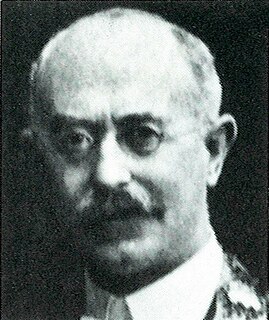
John Joseph Dougall was Mayor of Christchurch in 1911–1912. He was a solicitor by profession. In his later life, the Navy League was his main interest.

William Barbour Wilson, also known as Cabbage Wilson, was the first Mayor of Christchurch in New Zealand in 1868. A nurseryman by profession, he had large landholdings in Christchurch. His reputation was dented by a fraud conviction, and when he was subsequently elected onto the city council once more, five councillors resigned in protest.

Henry Sawtell was Mayor of Christchurch 1871–1872.

John George Ruddenklau JP was Mayor of Christchurch from December 1881 to December 1883. A baker from Germany, he was later the proprietor of the City Hotel. He was very active with a number of organisations, founded the German Benefit Association, and was the driving force behind the establishment of the German Church.

Aaron Ayers arrived in Christchurch, New Zealand from England as a newly married man in his mid 20s. He was a hairdresser and tobacconist for two decades before entering the auctioneering business. He was elected Mayor of Christchurch in 1885 unopposed, and was re-elected a year later in the most keenly contested mayoral election thus far, narrowly beating Charles Louisson. He retired after his second term as mayor. In 1887 he contested a 1887 by-election for Heathcote and the 1887 election for Christchurch South, but came second on both occasions. After his mayoralty, he lived mostly a private life and was known as an avid gardener.

Charles Melville Louisson, known as Charles Louisson or Chas Louisson, was a New Zealand politician. Born in London, and relocated to Australia as a teenager, he worked in farming and on the gold fields. He moved to Christchurch to join his brother Alfred in business, which they conducted in transport, as merchants and farmers in various places in the South Island. Back in Christchurch, they were joined by their brother Cecil and bought a brewery, which under their stewardship became very successful.

Thomas Gapes was Mayor of Christchurch 1893/94. His father James Gapes was twice mayor in the 1870s/80s. The family was of humble origin, had come out to New Zealand from London as assisted immigrants and were running a painting and paper-hanging business, but had come to status in their new country.
Walter Henry Cooper was Mayor of Christchurch in 1895, and again in 1897. Born in Somerset, he came to New Zealand early in his life via Australia. A butcher by trade, he later worked in trade and export. He was for many years a member of Christchurch City Council. After his wife died, he lived with his daughter in Victoria, Australia.
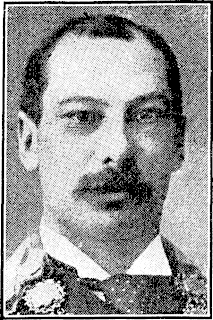
Harry Joseph Beswick was Mayor of Christchurch in 1896.
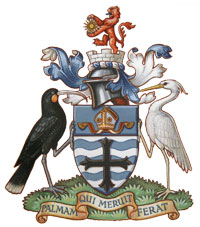
The Mayor of Nelson is the head of the municipal government of Nelson, New Zealand, and presides over the Nelson City Council. The mayor is directly elected using a First Past the Post electoral system. The current mayor is Rachel Reese, who was elected in October 2013.

The Christchurch mayoral election held on 27 November 1878 was contested by the incumbent mayor, Henry Thomson, and senior Christchurch City Councillor Charles Thomas Ick. The election was won by Ick with a large margin.

The Christchurch mayoral election held on 30 November 1881 was contested by German-born baker, hotel proprietor and businessman George Ruddenklau, and businessman Charles Taylor. The election was won by Ruddenklau with a small margin.
